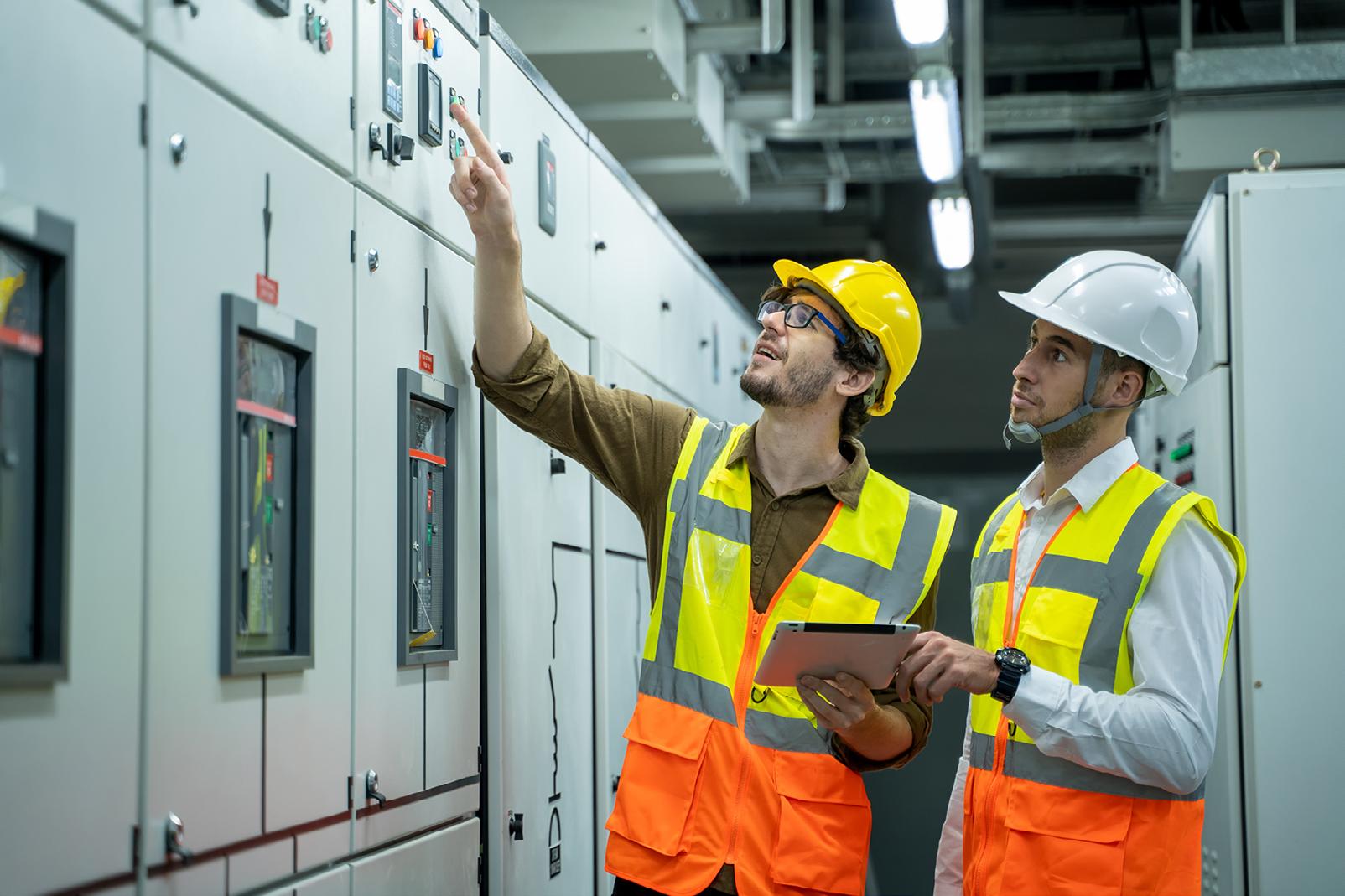
8 minute read
Start simple: Grow smart – the power of modular condition monitoring
The Industrial Internet of Things (IIoT) can feel like a new-fangled, complex digital application, requiring nothing short of a Ph.D. to understand even the most rudimentary steps. Nothing could be further from the truth. It has the unlocked potential to connect vertical data flows with horizontal ones to create a truly connected factory. Tapping into the right data, via a modular platform can be a low-risk and low-cost endeavour for companies wanting to save on energy consumption or improve CNC machinery efficiency. In short, extracting the right data can enable single integrated views of asset condition monitoring, leading to valuable energy-saving decisions in real-time.
Food and beverage and engineering factories are brimming with data, but between untapped data, stranded and siloed data and new data, it can appear simply like a never-ending labyrinth of differing systems and devices.
RS Industria offers a comprehensive solution with its cloud-based end-toend IIoT platform, through its modular asset-based monitoring approach. The system can collect different asset protocols such as: OPC-UA, MODBUS and PROFINET and translate them seamlessly into one common format. The data is then transmitted to the cloud platform to create a single point of asset insight, for engineers to analyse further. Due to its innovative modular format, monitoring of new assets can be added as key problems progressively solved for example, once energy consumption has been identified and decreased, wastewater or CNC machinery could be added to the system. This plug-and-play approach is simple, flexible, cost-effective and can be installed quickly. Richard Jeffers, Director for Industrial Solutions at RS Components encapsulates and demystifies the RS Industria approach, “At its simplest level, IIoT revolves around how machines interact with each other andhow we know what’s going on within those machines through data. It’s about extracting better data, not big data.”
“Rather than thinking of it as a single overwhelming project, industrial organisations need a structured approach to tap into their data by collecting it in a planned and modular way.”
RS Industria simplifies the connection of manufacturing assets such as vibration sensors, PLCs, SCADA systems and utility meters, offering state-ofthe-art condition monitoring insights and enhanced asset health status alerts.
The company was founded in 1937 as Radio Spares, supplying the radio industry with electronic components. It has grown substantially over the years, with the online e-commerce platform substituting the iconic, original RS Catalogue to become a global, £3 billion powerhouse supplying industrial components, supplies and consumables around the world. RS Group is now a FTSE Top 100 company.
RS Industria was created within this large and stable group, with a fast and flexible culture more akin to a Tech start-up, but without the financial risk. With three years of development and market operation behind them, RS Industria has enabled many manufacturers to save costs and improve the efficiency of their production lines through continuous digital monitoring of assets and processes.
Based in London, RS Industria prides itself on supplying an industrial data platform, offering valuable asset insights for evidence-based decisions. We caught up with John Bound: Head of Proposition Marketing at RS Industria for more insights, “We want our customer to start simple: grow smart. Many companies are confused by the technobabble around industry 4.0 and IIoT and feel they are being left behind. We are fully aware of the perceived barriers to IIoT, from substantial upfront costs (especially for SMEs), the almost mythical complexity surrounding system integration, legacy system retrofitting, cyber security, the skills gap in data analytics, the upheavalfrom change management, to ROI uncertainty. These are all valid concerns and as a business, trying to overcome these barriers on your own is very difficult and requires a combination of careful planning, investment, education, collaboration, and a long-term commitment to digital transformation. This is why adoption of these technologies is so low in industry and why in-house IIoT projects often fail.”
“However, the core proposition of RS Industria is that our platform and our implementation team overcome these barriers quickly and cost-effectively –delivering the benefits much faster than in-house projects or many of our competitors.”
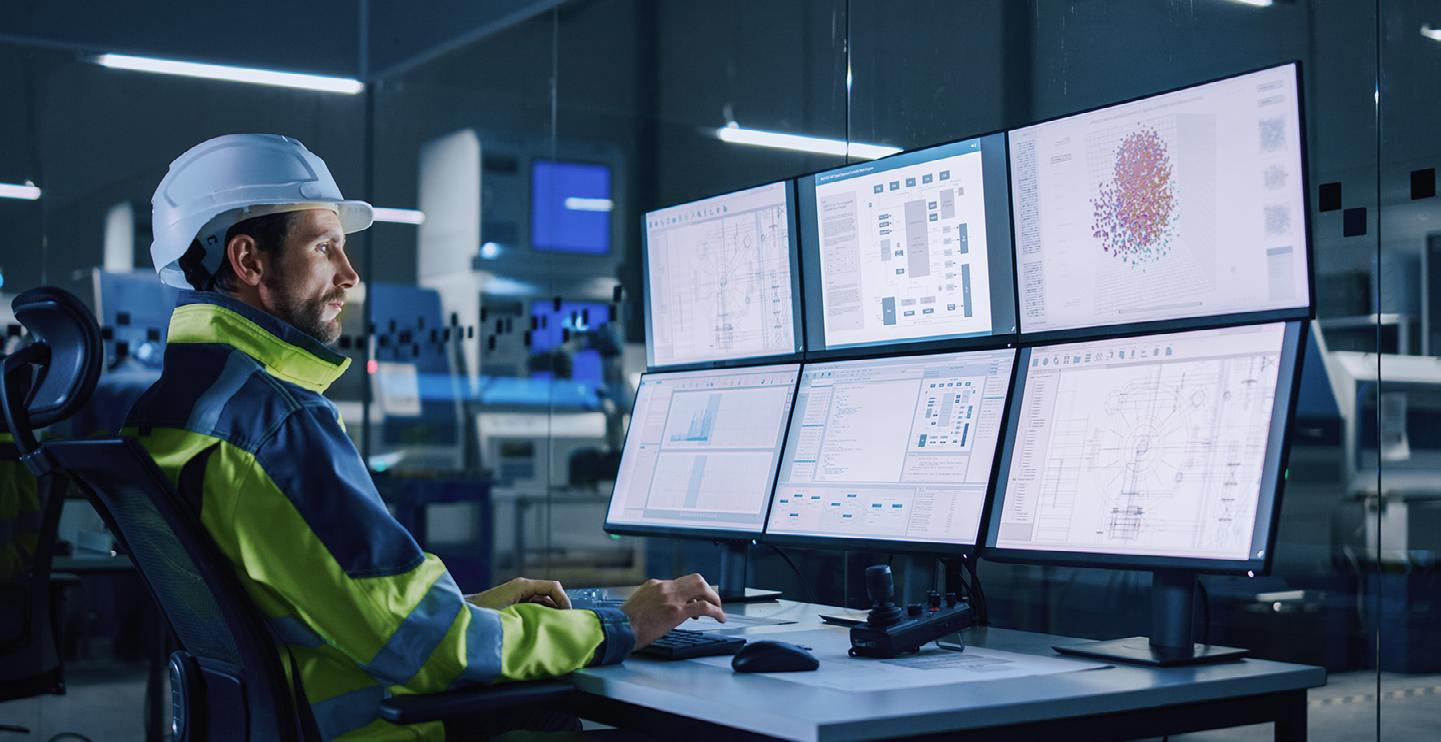
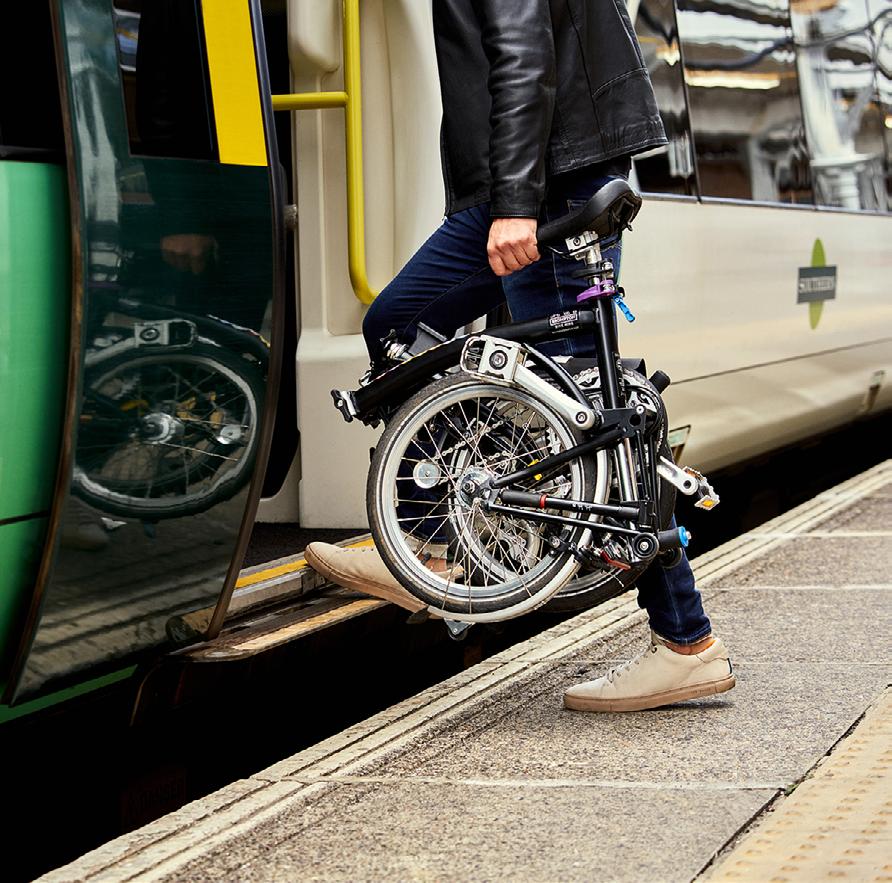
Statistics from expert business consultants: Deloitte UK show that equipment failure is the leading cause of downtime, with unplanned maintenance and paused production costing the manufacturing industry in excess of £337 billion per year.
Brompton Bicycle is one of the UK’s largest bike manufacturers, renowned for their legendary fold-up bikes. They rely heavily on their Greenford manufacturing factory in West London and their welding site in Sheffield, Yorkshire, to keep up with high demand. Engineers at the Greenford site were frustrated with one of their key CNC cells, which, due to the complexity of the different machining operations, meant that the sixaxis machine had a relatively long cycle time. Because of this, that particular CNC machine had become a production bottleneck – the slowest part of the line.

Brompton Bicycle were familiar with RS Industria through their existing use of the platform to monitor energy consumption, which had already saved the company thousands of pounds, and decided to collect the CNC machine data via continuous monitoring. This was nothing short of a game-changer, as Brompton Manufacturing Engineer: Malcolm Millar explains, “This industrial data platform has removed the need for testing a high volume of parts. RS Industria has also led to an improved cycle time, as well as freeing up engineers’ time better spent on other activities. I have been using RS Industria to develop tooling speeds and feeds. By exporting peak torques for Spindles 1A/1B, I plugged the data into Minitab to run an optimisation analysis to minimise torque & noise.”
The result was that Malcolm’s team were able to reduce the process cycle time, remove the bottleneck and increase annual production capacity by up to 20,000 bikes – for minimal capital investment. Brompton are now looking at extending the existing monitoring on their paint line and extending it to the Autobraze and wheel-building operations, creating real-time visibility of the whole Greenford factory site.
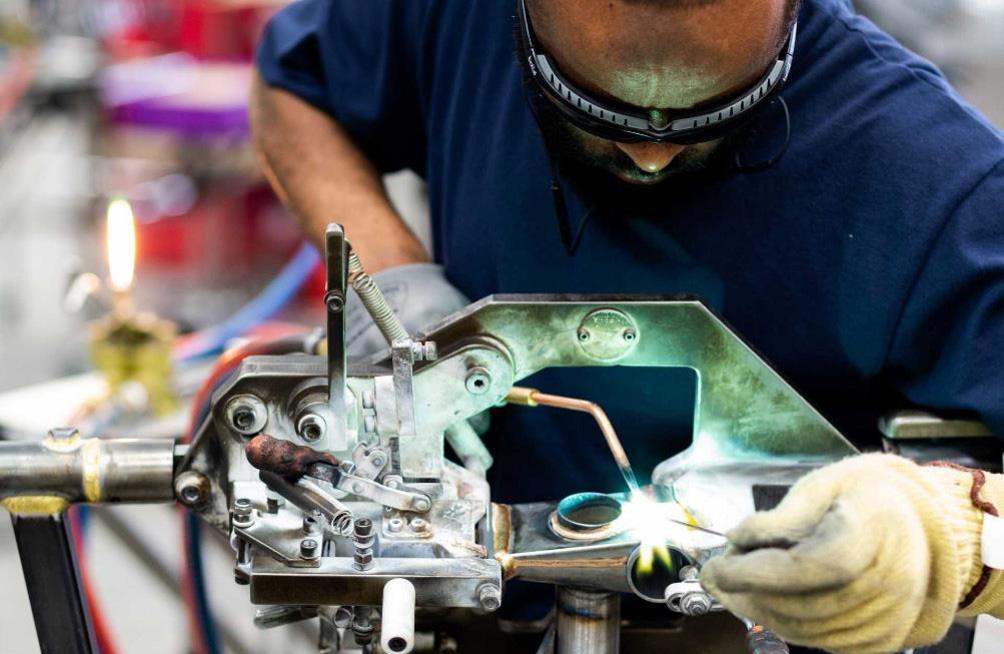
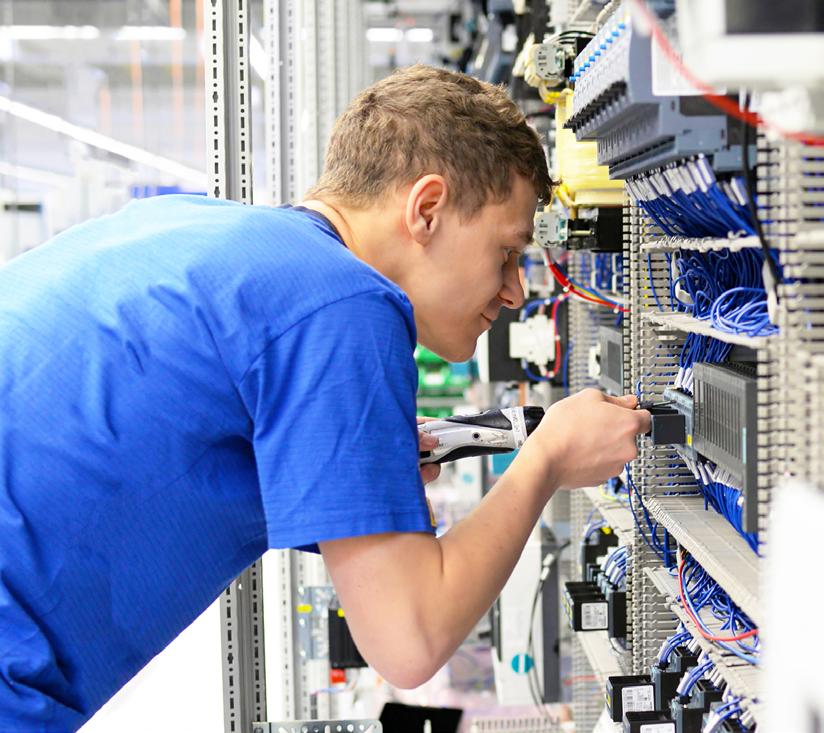
It is common for companies to focus on a particular area of immediate concern, such as energy consumption, and then extend the monitoring system to other aspects such as machinery and processes. as they see the benefits of better data. To facilitate this low-risk, high-return approach, RS Industria is a modular system, specifically structured to make the expansion process simple and quick.
An example of this is a global food and beverage group that has over 150 manufacturing centres across over 30 countries. One of their UK sites produces the sweet and fruit ingredients for preserves, fillings, sauces and toppings. The company, like many around the UK, is firmly committed to the UK Government’s 2050 Net-Zero targets and wanted to actively reduce carbon emissions and energy costs across its operations by 2030. The site had a few existing energy meters and submeters, but the consumption data had to be collected manually each week, and both the limited scope and the slow data collection meant the site team did not have a clear view of energy consumption by area, process or time. By connecting the existing submeters to the RS Industria platform and installing new ones across the plant, they were soon able to see how and where energy was used. This real-time visibility of usage enabled the team to prioritise and target areas of high consumption and waste by changing procedures and amending behaviours –such as turning off equipment left on standby or by shutting down whole areas over the weekend.
The rapid deployment of the energy monitoring system led to an astonishing 14% decrease in energy consumption within the first three weeks. The RS Industria system also enabled them to experiment in real-time, by turning equipment and distribution circuits on and off to determine the base loads.
The two previous case studies illustrate how deploying the RS Industria condition monitoring system can offer companies insight into their production processes, enabling them to potentially make huge savings on energy costs and other utilities such as wastewater, and to optimise their production processes and ancillary equipment.
To find out how RS Industria can help your company today with condition monitoring of your factory assets, see the website below.
RS Industria will be at Smart Production Solutions Expo (SPS) at NürnbergMesse, Nuremberg, Germany from 14th-16th November 2023.
T 0333 2470235
https://www.rs-industria.com










